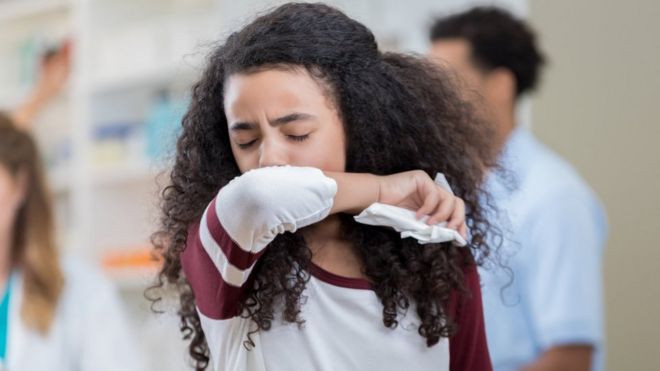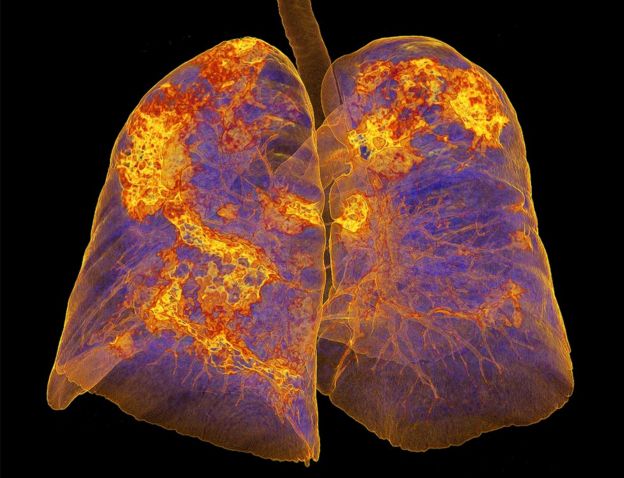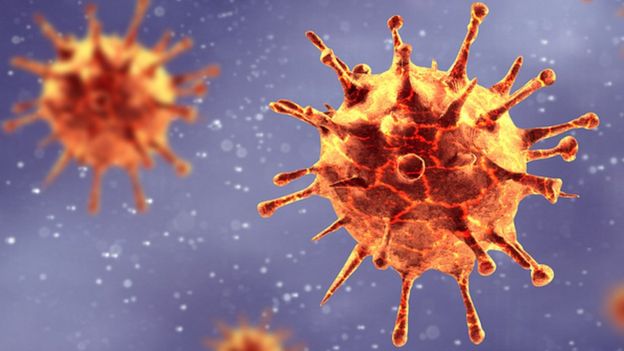How can I prove I've had the vaccine? And other questions
- Published
The vaccine roll-out is well underway in the UK, but restrictions remain in place in England and most of Scotland, as well as Wales and Northern Ireland.
Here are some of your latest questions.
Questions and answers
Latest questions
Your questions
Skip Latest questions-
Saga Cruises (and some others) say customers will need to prove they have been vaccinated in order to book with them. How can you prove it? Michael Sharman, Twickenham
-
How safe is the vaccine for young adults with Down's syndrome? Jane Chatfield
-
Should I be washing my hair as well as my hands when I come home from outside (heavy breathing joggers passing me, supermarkets etc)? Asme Sheikh, London
On balance, this is almost certainly unnecessary.
While hand washing is very important for personal hygiene, none of the advice from the world’s leading health bodies – the World Health Organization for example, the CDC in the US or the NHS in the UK – places any importance on hair washing one way or another.
It’s theoretically possible that you could catch the virus if someone sneezed on your hair and those droplets found their way to your eyes, nose or mouth (for instance if your hair fell over your face).
However, research suggests that while virus droplets can survive for a couple of hours on some non-porous surfaces such as steel, there are few – if any – cases of Covid which can be traced back to being transmitted in this way.
-
Why is it that taxi drivers can choose whether to wear a mask or not? Angela Farrington
The Department for Transport (DfT) has not made it compulsory for taxi drivers to wear face coverings in England because they say they do not want to interfere with the rules and regulations of different transport operators.
However, DfT still advises that drivers wear face coverings when they are unable to socially distance.
In any case, many major operators – Uber, for example – insist that face coverings are worn by both passengers and drivers.
Transport for London has also asked all taxi and private hire companies to ensure drivers wear face coverings.
Taxi drivers in Wales are advised but not compelled to wear face coverings, but it is mandatory in Scotland and Northern Ireland.
The vaccine roll-out
Your questions
Skip The vaccine roll-out-
My 89-year-old father had the vaccine a week ago. Is it safe to hug him now? From Cheryle Locke
-
Is it true that the vaccine can affect fertility? From Patricia, Weston-Super-Mare
 Michelle Roberts Health online editor
Michelle Roberts Health online editorExperts say there is no evidence that the vaccine affects fertility.
Those who intend to try to become pregnant do not need to avoid pregnancy after vaccination.
-
Will the vaccine last for the rest of your life, or will you have to have a vaccine every 12 months, like the flu jab? From Robert Parker, Warwickshire
 Michelle Roberts Health online editor
Michelle Roberts Health online editorIt’s not clear yet how long immunity might last after vaccination.
It is possible that people will need to be vaccinated annually or every few years to have protection.
-
Can I have the vaccine safely if I am allergic to penicillin? From James, Bristol
 Michelle Roberts Health online editor
Michelle Roberts Health online editorYes. Allergy to penicillin is not listed as a clinical reason to avoid having either the Pfizer-BioNTech or the AstraZeneca-Oxford Covid-19 vaccine.
However, when you are invited for your Covid vaccine, you should discuss your allergies with healthcare staff to make sure there is no other reason to avoid it.
-
Vulnerable 65-70-year-olds have not been included in the first round of vaccinations. Will we definitely get the jab after the first group? From Ian Cross, Watford
-
Will vaccination teams have regular coronavirus testing, so they don't infect the people they are protecting? From Ivan Young, Romsey, Hants
The latest travel rules
Your questions
Skip The latest travel rules-
Can I travel back home for my vaccination? I am living in a different county with my support bubble, but registered with my GP elsewhere. From Ida, Southend-on-Sea, Essex
-
I’m currently in Gran Canaria Spain and planning to return to home (London) around 26th February. Do I need a PCR test? From M Rad, London
You will need to show evidence of a recent negative coronavirus test before you depart, if the new rules are still in force, but Transport Secretary Grant Shapps has indicated that several different types of test will be accepted.
From next week, passengers to the UK will need to prove at the start of their journey that they had a negative test for coronavirus less than 72 hours beforehand.
PCR tests are seen as the “gold standard” because of their high level of accuracy, but the results must be analysed in a lab, meaning they can take a day or more to come back.
The government has suggested rapid lateral flow tests will also be acceptable. These are quicker and often easier to obtain than a PCR test, usually offering results within half an hour.
Most UK arrivals – including those from Spain - must also quarantine on arrival for 10 days. You may be able to shorten your self-isolation time if you pay for a test after five days, and it comes back negative.
-
I am in Norway right now. My flight back to Aberdeen is on 12 January. I’m a permanent resident and my husband is Norwegian. What are the arrival requirements? From Dahliah Aziz, Aberdeen
School and university closures
Your questions
Skip School and university closures-
Why can’t the government decide to keep all pupils and students back a year so that no-one misses out on their education? From Anne Ellioy, Iver
Making children repeat a year at school is something rarely tried in the UK, even though it is fairly common in the US and some other countries.
Commenting in June, the Department for Education said it was down to individual headteachers to decide how to educate pupils. “This may, on occasion, include deciding that a child should be educated in a year group other than the one indicated by their age." It added: "Such decisions should be based on sound educational reasons and in consultation with parents.”
However, it’s not clear whether the strategy works. Analysis by researchers at Durham University found that pupils who were held back a year were likely to make four months less progress than if they moved up a year with everyone else.
What’s more, the cost of keeping a pupil back a year is expensive - an estimated £6000, far more than it would cost, for instance, to provide intensive tuition for struggling pupils.
-
My daughter wants to return to university, the course is online until February but her halls are paid for. Is she allowed back? From Jennifer Carter, Bath
The winter lockdown
Your questions
Skip The winter lockdown-
Can I go out for a walk with friends? From David Girling, Portishead
-
Are support bubbles still allowed for single parents? It was not covered in the prime minister’s announcement. From Liz, Sheffield
-
My elderly mum is my support bubble but she does not live locally (about a 90-minute drive away). Am I still allowed to go to see her? From Tina Howson, Leicester
There is nothing to stop you continuing your support bubble with your mother. Although the central message of the new lockdown is that everybody should stay at home where possible, the government's guidance says that you are permitted to leave your home and travel to visit your support bubble (and to stay overnight with them).
However, it's important that you follow guidelines when you leave home, which include social distancing, and not mixing with anyone other than your mother.
When driving to see her, you should also not share your car with anyone not in your household.
-
I am a nurse and my husband is recovering from blood cancer. Going to work means taking chances on his life. Can I be furloughed? From Lisha, Fareham
-
I am 77 years old - do I have to stay in? From Maureen Watkins, Sheffield
The new variant strain
Your questions
Skip The new variant strain-
Can you explain how the new variant of the Covid virus is more transmissible? What does this mean exactly? From Kevin Waite
-
Why is this virus spreading so quickly if we are washing our hands endlessly? From Christine Byman
 Michelle Roberts Health online editor
Michelle Roberts Health online editorThis new variant does appear to be spreading more easily and becoming the dominant type of coronavirus in some parts of the UK.
But human behaviour is extremely important too. Following social distancing rules can help stop the spread. The new variant can still be destroyed with soap and water.
More vaccine questions
Your questions
Skip More vaccine questions-
How do staff know that the vaccine they are giving you has not expired because of incorrect storage? From Keith, Loughborough
-
Is it safe for pregnant women and their babies to take the vaccine? From Abbie Rankin, Dumfries
-
How can we be sure the vaccine is safe with such a short testing period? From Maddie M
Rachel Schraer Health reporterAlthough it’s been done quickly, this vaccine trial hasn’t skipped any of the usual steps.
The only difference is that some of the stages overlapped so, for example, phase three of the trial – when tens of thousands of people are given the vaccine – started while phase two, involving a few hundred people, was still going on.
Side effects usually show up quite quickly after vaccination and longer-term effects are extremely rare – much, much rarer than long-term side effects of the virus.
Usually vaccine trials are slowed down by long periods of waiting around, applying for permission, funding and resources.
It’s those elements that were sped up, because of the huge global interest in doing so.
-
When the rollout of the vaccine begins with the priority 1 group, will those in that group who have had Covid already, be vaccinated? From Neil, Croydon
Rachel Schraer Health reporterPeople will be vaccinated whether or not they’ve had Covid.
We don’t yet know how long natural immunity lasts, and vaccination can offer better protection than immunity from the disease itself.
-
Is the vaccine compulsory? From Kim, North Yorkshire
Philippa Roxby Health correspondentNo, people in the UK are not being told they must have the vaccine.
However, those in the most at-risk groups (over-70s and care home residents), and people who work in care homes and for the NHS will be expected to have it - to protect themselves and the people they care for.
Making a vaccine mandatory is not usually recommended because it can lower confidence in the jab.
-
How long will immunity last once vaccinated? From Seth Harris, Norfolk
Philippa Roxby Health correspondentScientists don’t know the exact answer to that at the moment.
The volunteers in the vaccine trials who were given the jab will be followed up for many months to come to check how long they are protected for.
Natural immunity to the virus, once someone has been infected, appears to last at least six months so it’s likely a vaccine will offer this length of protection and hopefully a lot more.
More questions about vaccines
Your questions
Skip More questions about vaccines-
What must people do after receiving a coronavirus vaccine? Carry on life as normal, wear a mask, adhere to distancing rules? From Mary Mullens
 Michelle Roberts Health online editor
Michelle Roberts Health online editorThe vaccine significantly reduces the risk of getting seriously ill with coronavirus. But it is unclear whether it stops people from catching the virus or passing it on to others.
So it is really important that people continue with social distancing, wearing face coverings and washing their hands, even if they have been immunised.
-
Is the Oxford vaccine suitable for people whose immune systems are not strong, such as transplant recipients? From Carol Olley, Newcastle
 Michelle Roberts Health online editor
Michelle Roberts Health online editorIf your immune system is suppressed and not working as well as it might, some "live" vaccines are not recommended. This is because the weakened virus they are made from could cause problems.
The Oxford vaccine is not a "live" vaccine. Scientists are testing which patients could benefit from it and whether this might include people with certain health conditions, or who are taking particular medication or undergoing treatment for something else, such as cancer or HIV.
There are lots of different Covid vaccines in development and some may be more suitable for different groups than others.
-
Is the Oxford AstraZeneca vaccine any safer or more traditional than Pfizer and Moderna’s vaccines? From Tom Haslam, Leicester
-
My husband is allergic to eggs and cannot have a flu jab because they use egg to culture the vaccine. Is it the same with COVID-19 vaccines? From Yvone, Albury
 Michelle Roberts Health online editor
Michelle Roberts Health online editorNeither the Pfizer jab nor the Covid vaccines that could soon be approved for use - Moderna or Oxford/Astrazeneca – are made using eggs so there should be no issue for people with egg allergies.
-
Is there any point taking the Oxford vaccine as it is not effective enough? From A Frost
 Michelle Roberts Health online editor
Michelle Roberts Health online editorNo vaccine is 100% effective for everyone. And 70% is still very good, particularly for a disease as serious as Covid-19.
US regulators had said they would accept 50% protection as worth pursuing for Covid. Flu jabs are between 40% and 60% effective.
-
Will I be able to choose which vaccine I receive? From Sarah, Oadby
 Michelle Roberts Health online editor
Michelle Roberts Health online editorOnly one vaccine has been approved so far.
If more than one gets the green light from regulators, then the priority will be getting doses out to the people who need it the most, as quickly as possible.
These steps will determine which vaccines are available first and can be offered to patients. It is unlikely that people will be able to pick and choose.
-
Does the Moderna vaccine have storage and distribution constraints similar to the Pfizer vaccine? From Colin Hayes
 Michelle Roberts Health online editor
Michelle Roberts Health online editorBoth vaccines need to be stored at below freezing temperatures when they are transported from the factory out to clinics.
The Pfizer jab needs to be kept at around -70C, which is somewhat challenging, while the Moderna one can be kept in a normal freezer temperature of -20C.
Both can be thawed and kept in a fridge once they arrive at the clinic, but the Pfizer one then has a short shelf life of five days compared to four weeks for the Moderna vaccine.
-
If the vaccine is successful and vaccination begins, how will I know if the people around me in a public place have been vaccinated? From David Rowe, Crawley
 Michelle Roberts Health online editor
Michelle Roberts Health online editorInitially, only a small proportion of society will be offered a vaccine. The first stocks reaching the UK will be offered to those who need protecting from coronavirus the most in terms of disease severity – the elderly living in care homes and the health staff who work there.
Medical notes will say if an individual has been given the vaccine, but these are private records. There is no suggestion yet that people will need to carry proof of immunisation.
-
What is the difference between a recovery with a small chance of reinfection, and a vaccine that is only 90% effective? From Clark, Kidderminster
 Michelle Roberts Health online editor
Michelle Roberts Health online editorPeople can get immunity to coronavirus either naturally – when they have been infected – or via a vaccine.
A vaccine that is 90% effective means that most people (nine in every 10) who are immunised will get some protection against the disease.
The big question is how long does this protection last? Scientists do not know the answer, either for natural immunity or vaccine-induced immunity.
-
I have been waiting for two months for a skin cancer biopsy. Will the Covid 19 vaccination programme mean I wait longer? From Bill Singleton, Bristol
 Michelle Roberts Health online editor
Michelle Roberts Health online editorThe NHS has been planning how best to roll out the vaccine. It will be a large-scale immunisation programme, requiring lots of trained staff to administer the jabs.
Pharmacists, nurses, doctors and other healthcare professionals will be able to vaccinate people in a range of settings – including care homes, hospitals and GP clinics as well as pop-up centres, such as sports stadiums and conference buildings.
It could mean some delays to some non-Covid NHS services, but urgent and essential care will be prioritised. The aim is to keep usual services running whenever possible. You could contact your GP to discuss any concerns you have.
-
Whilst the vaccine will not be mandatory, is it possible that establishments could make proof of vaccination a condition of entry? From Will Ho, London
-
Given that the Pfizer/BioNtech vaccine needs to be stored in ultra-low temperature, would there be any major logistical challenges in that respect? From Jack
 Michelle Roberts Health online editor
Michelle Roberts Health online editorThe ingredients in the Pfizer/BioNtech vaccine are not very stable and need to be kept at below -70C until before use.
That means it must be transported carefully. But it must be thawed before it is given to a patient and Pfizer says the jab remains viable for up to five days kept in a normal fridge before it is administered.
-
Will the new vaccine protect against mink-mutated Covid? From Daemon Griffiths
 Michelle Roberts Health online editor
Michelle Roberts Health online editorExperts have recently discovered mutations in the genetic code of coronavirus that appear to have happened when mink caught the disease from humans and then passed it back to people.
Scientists are studying these alterations to see if they have significantly changed the behaviour and threat of the virus to mankind. So far, there is no evidence that the mutations pose an increased danger to people or that they will undermine the effectiveness of any Covid-19 vaccines.
All viruses mutate to some extent over time. Some changes can make a virus less lethal or contagious. Flu – a different virus to Covid – changes frequently, which is why the annual flu vaccine changes too, to keep pace.
The NHS Covid tracing app
Your questions
Skip The NHS Covid tracing app-
Currently the NHS tracing app requires IOS13.5 or above to install, so it is not compatible with older phones. Is there a workaround? From Taraka
-
My wife and I currently live apart until I retire. I live in Cumbria, she lives in Fort William. Which tracing app should I use? From Nick Jowett, Burgh-on-Sands, Cumbria
-
I have a bar and restaurant and I have just watched BBC news report on the new NHS app and QR code. Where do we obtain the QR code? From Steve Capewell, St Columb, Cornwall
-
I have hearing aids which are connected to my smartphone via Bluetooth, will this affect the operation of the app? From Richard Smith, Milton Keynes
All about coronavirus
Your questions
Skip All about coronavirus-
What is the coronavirus? from Caitlin in Leeds Most asked
-
Once you've had coronavirus will you then be immune? from Denise Mitchell in Bicester Most asked
-
What is the incubation period for the coronavirus? from Gillian Gibs
 Michelle Roberts Health online editor
Michelle Roberts Health online editorScientists have said that the “incubation period” - the time between catching the virus and starting to show symptoms - is five days on average. However, some people can have symptoms earlier or much later than this.

The World Health Organization advises that the incubation period can last up to 14 days. But some researchers say it may be up to 24 days.
Knowing and understanding the incubation period is very important. It allows doctors and health authorities to introduce more effective ways to control the spread of the virus.
-
Is coronavirus more infectious than flu? from Merry Fitzpatrick in Sydney
 Michelle Roberts Health online editor
Michelle Roberts Health online editorBoth viruses are highly contagious.
On average, it's thought people with the coronavirus infect two to three other people, while those with flu pass it on to about one other person.
There are simple steps you can take to stop the spread of flu and coronavirus:
- Wash your hands often with soap and water
If you have returned from holiday abroad and have to self-isolate in quarantine, you will not automatically qualify for Statutory Sick Pay (SSP), so it's possible you might have to make arrangements with your employer if you cannot work from home.
- Catch coughs and sneezes in a tissue and then put it in the bin
-
How long can you be ill? from Nita in Maidstone
-
Asymptomatic people are regarded as "silent spreaders" - what proportion of the population are they estimated to be and how do you find them? From Val Holland in Worcester
-
Why are diabetics not included in the clinically extremely vulnerable patients, and will the list be refreshed? from Derek Roberts in Hornchurch, Essex
-
How dangerous is coronavirus for people with asthma? from Lesley-Anne in Falkirk
 Michelle Roberts Health online editor
Michelle Roberts Health online editorAsthma UK's advice is to keep taking your daily preventer inhaler (usually brown) as prescribed. This will help cut the risk of an asthma attack being triggered by any respiratory virus, including coronavirus.
Carry your blue reliever inhaler with you every day, in case you feel your asthma symptoms flaring up. If your asthma is getting worse and there is a risk you might have coronavirus, contact the online NHS 111 coronavirus service.
-
Are otherwise healthy disabled people more at risk from coronavirus? from Abigail Ireland in Stockport
 BBC News Health team
BBC News Health teamCoronavirus can be more severe in older people and those with pre-existing conditions such as heart and lung illnesses, or diabetes.
There is no evidence that disabled people who are otherwise healthy - and who don't, for instance, have respiratory problems - are at greater risk from coronavirus.
-
Will people who've have had pneumonia experience milder coronavirus symptoms? from Marje in Montreal
 BBC News Health team
BBC News Health teamCovid-19 can, in a small number of cases, lead to pneumonia, most notably in people with pre-existing lung conditions.
But as this is a new virus, no-one will have any immunity to it, whether they have previously had pneumonia, or any other form of coronavirus such as Sars.

-
With key workers wearing some sort of mask, how are deaf people who lip-read supposed to understand what is being said? From Margaret Roll in Clevedon
Wearing masks presents major challenges for some deaf people who rely on lip-reading to communicate, but who also need to stay safe from catching the virus, especially if in a hospital setting.
The charity Action on Hearing Loss says there are some clinically approved see-through covered face masks that help enable lip-reading. However, they do not provide enough protection against aerosols spread by coronavirus, and wouldn’t be right for health and social care workers to use during this pandemic.
Many of the experimental coronavirus jabs currently being tested contain the genetic instructions for the surface spike protein that coronavirus uses to attach to and infect human cells. Reassuringly, scientists have not seen any substantial mutations to this part of the virus yet that would render these vaccines useless.

Protecting myself and others
Your questions
Skip Protecting myself and others-
What should I do if someone I live with is self-isolating? from Graham Wright in London
 BBC News Health team
BBC News Health teamIf you’re living with someone who’s self-isolating, you should keep all contact to a minimum and, if possible, not be in the same room together.
The person self-isolating should stay in a well-ventilated room with a window that can be opened, and keep away from other people in the house.
If you live with someone who has symptoms, you'll also need to self-isolate for 14 days from the day their symptoms started.
If you get symptoms, self-isolate for 14 days from when your symptoms start, even if it means you're self-isolating for longer than 10 days. If you do not get symptoms, you can stop self-isolating after 10 days.
If you or your housemates develop symptoms after 00:01 GMT on Monday 14 December, you will only have to self-isolate for 10 days.
-
Should people stop having sex? from Martha Menschel in Las Vegas
If you live with your partner, they count as being part of your household. If neither of you is showing coronavirus symptoms and you are already in close contact, having sex won't increase the likelihood of you catching the virus from one another. If one person does have symptoms, they should be self-isolating in a separate room.
Using contraception such as condoms won't alter your risk of catching the virus, as having sex will bring you into close physical contact anyway.
"If you are going to touch each other's genitals it's likely that you will potentially be kissing at the same time - and we know the virus is passed through saliva," Dr Alex George told the BBC's Newsbeat.
"Essentially, any possibility of transfer of coronavirus - from your mouth to your hands, to genitals, to someone else's nose or mouth - increases the risk of passing on coronavirus."
Me and my family
Your questions
Skip Me and my family-
I am five months pregnant and want to understand the risk to the baby if I get infected? from a BBC website reader
 James Gallagher Health correspondent
James Gallagher Health correspondentPregnant women are being advised by the UK government to stay at home and keep contact with others to a minimum. However, they should attend antenatal clinics as normal.
There is no evidence to suggest that pregnant women are more likely to get coronavirus. But, for a small number of women, being pregnant may change the way their body deals with a severe viral infection.
The government’s chief medical adviser says this is a precautionary measure until scientists find out more about the virus and that "infections and pregnancy are not a good combination in general”.
-
I am breastfeeding my five-month-old baby - what should I do if I get coronavirus? from Maeve McGoldrick
 James Gallagher Health correspondent
James Gallagher Health correspondentMothers pass on protection from infection to their babies through their breast milk.
If your body is producing antibodies to fight the infection, these would be passed on through breastfeeding.
Breastfeeding mums should follow the same advice as anyone else over reducing risk - cover your mouth when you sneeze and cough, throw away used tissues straight away and wash hands frequently, while trying to avoid touching your eyes, nose or mouth with unwashed hands.
-
Is it possible to catch coronavirus from a pet dog or cat? from Javed
Work issues
Your questions
Skip Work issues-
I'm self-employed. Can I claim benefits if I can't work due to the virus? from Mark Gribby in Nottingham
 Simon Gompertz Personal finance correspondent
Simon Gompertz Personal finance correspondentSelf-employed people who have symptoms or have been told to self-isolate may apply for two benefits - universal credit or employment and support allowance.
Normally, you would be eligible after four days of being ill. However, the government has responded to the spread of coronavirus by saying that companies will temporarily pay SSP from the first day off.
But charities are worried that there is still a five-week delay before universal credit is paid.
-
Who is eligible for universal credit? from Mario in London
-
If you have to self-isolate will you only get statutory sick pay, or will your employer pay your salary? from Laura White in Herefordshire
-
What are my chances of getting a job in lockdown/when lockdown is over? from Jess in Essex
Quarantine
Your questions
Skip Quarantine-
Can I travel to Ireland and then onto another country, then back to the UK via Ireland to avoid the quarantine? from Chris McCann in Sandhurst
-
Do key workers have to quarantine? From Mateusz in London
-
Will my flatmates have to quarantine as well because of me? From Matteo in London
Unless your flatmates were travelling with you, they do not need to self-isolate or quarantine with you.
However, you must avoid contact with them and minimise the time you spend in shared spaces like kitchens, bathrooms and sitting areas.
You should stay in a well-ventilated room with a window to the outside that can be opened, separate from your flatmates, and if you can, you should use a separate bathroom from them. If you do need to share these facilities, regular cleaning will be required after each person has used them.
Make sure you use separate towels from the other people in your house, both for bathing and showering, and for washing your hands.
-
If I have to quarantine after a holiday and can’t work from home will I get paid? From Emma in Portishead, Bristol
Not necessarily.
If you have returned from holiday abroad and have to self-isolate in quarantine, you will not automatically qualify for Statutory Sick Pay (SSP), so it's possible you might have to take the extra time off as annual leave, or else as unpaid leave.
The Department of Work and Pensions says that anyone planning to travel should do so in the knowledge that they will be required to self-isolate on their return.
It adds that employers and staff should discuss and agree any arrangements in advance, and urges employers to take socially responsible decisions.
Meanwhile, the Foreign & Commonwealth Office is still advising UK nationals against taking all but essential international travel.
What do I need to know about the coronavirus?
What questions do you have about coronavirus? Do you want to ask it on BBC News? Get in touch and we may ask you to send us a video of you asking your question.
In some cases, your question will be published, displaying your name, age and location as you provide it, unless you state otherwise. Your contact details will never be published. Please ensure you have read our terms & conditions and privacy policy.
Use this form to ask your question:
If you are reading this and can't see the form above you will need to visit the mobile version of the BBC website to submit your question or send them via email to YourQuestions@bbc.co.uk. Please include your name, age and location with any question you send in.
Related Topics
- Published
- 4 days ago
- Published
- 4 days ago
- Published
- 8 hours ago